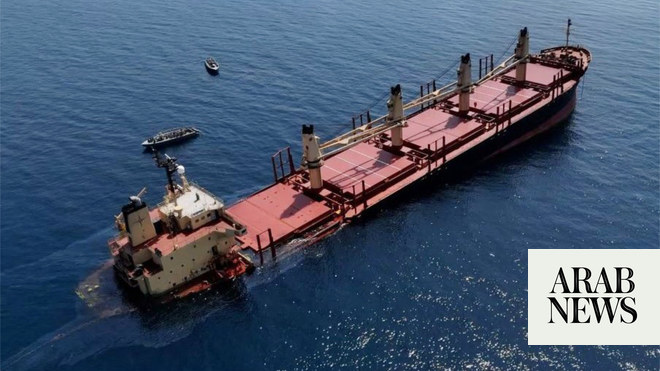
Yemen’s Minister of Petroleum and Minerals, Aws al-Oud, confirmed that Houthi putschists had undermined the national economy and left the citizens to bear the consequences. The minister shed light on the difference in the prices of oil byproducts sold in liberated areas vis-à-vis coup-controlled areas.
In an interview with Asharq Al-Awsat, Oud discussed the latest developments in the file of the Safer oil tanker, the future of oil and gas in Yemen, and investment plans for international petroleum companies.
Oud, talking about the Safer oil tanker, said that Houthis still refuse to allow international bodies to inspect the vessel, despite the threat it poses to marine life in the area.
Several Arab countries have called on the UN to pressure Yemens Houthi militia into allowing the world body to inspect a decaying oil tanker moored off the countrys coast, warning that it may explode and cause "widespread environmental damage" to the Red Sea region.
The Safer oil tanker has been docked 60km north of Yemens port city of Hodeidah since the late 1980s, but has not been in use since the Houthis seized the region in 2015.
Amid a lack of maintenance and breakdown of crude inside the vessel, the UN has repeatedly warned that there is a risk of a chemical explosion.
In August, when a UN team attempted to access the tanker, Houthis blocked them, demanding revenue from the sale of oil aboard the vessel as a precondition for the inspection.
According to Oud, the Safer oil tanker holds over a million barrels of crude oil and has gone five years without any maintenance.
“The situation demands rapid and emergency intervention… Therefore, we reiterate our call to the international community and the UN envoy to intervene in persuading and convincing the militias of the gravity of the situation, since the disaster will have repercussions on many matters and no one will be excluded,” Oud said.
When asked about Houthis not responding to the drop in oil prices globally, Oud said that the Iran-backed militia is looking to strengthen its shadow economy.
“Houthis have undermined the official economy of the state, and they continue their war and sabotage actions against national gains, and against public institutions in favor of a closed "hidden" economy,” Oud said.
“Houthis imposed many royalties and taxes on basic goods and services, burdening citizens in unliberated areas,” he added.
When asked about how much oil contributes to the value of the gross domestic product, Oud stated that oil revenues played a main role in financing the state’s general budget since the 90s.
“Yemen is a small producer of crude oil, compared to other countries in the region. However, the petroleum sector (oil and gas) has had a major role in financing the state budget and financing development since the early 1990s,” Oud said.
“The oil and gas sector played a vital role in economic activity and macroeconomic balances, as it was estimated at 22.8% of GDP, contributed to 83.3% of total merchandise exports, and 45% of total public revenue in 2014,” he added.












